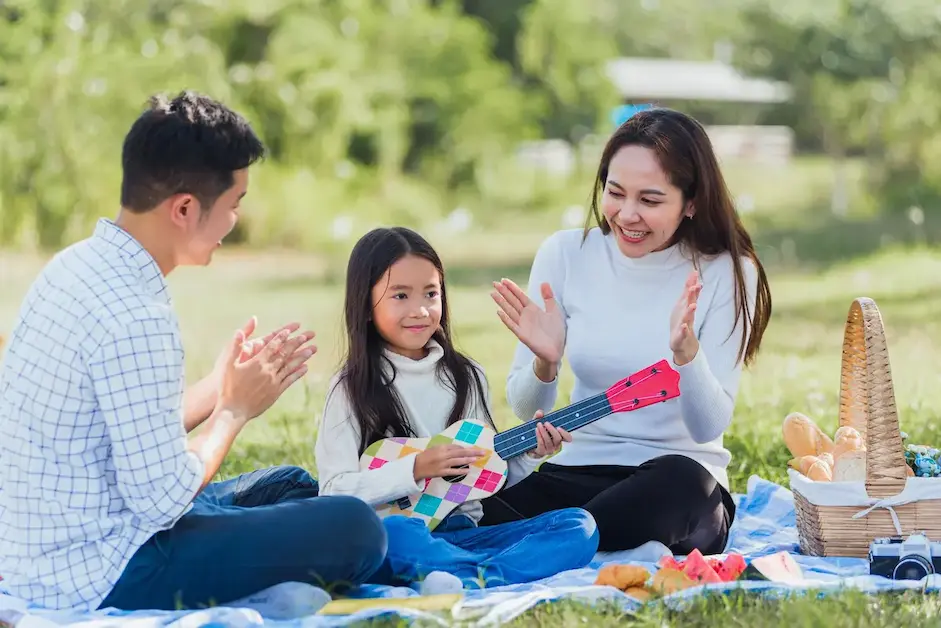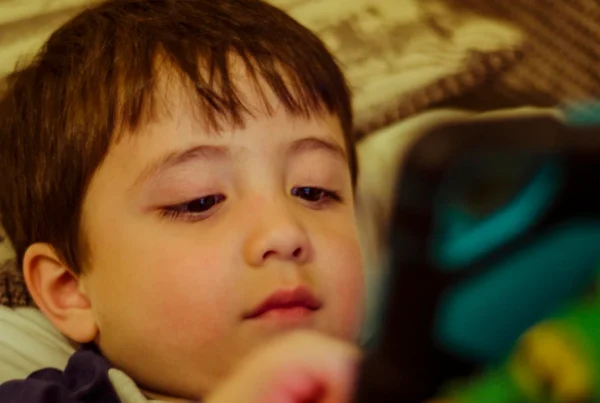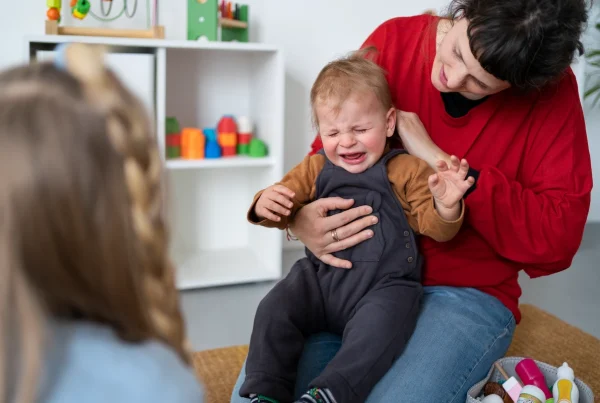For some children, making friends comes as naturally as breathing. They walk into a room, smile, and quickly find a buddy to play with. For others, the process is more challenging. They might be shy, cautious in new settings, or unsure how to approach peers.
As parents, we know that friendships are more than just playdates and lunchtime chats. They are a vital part of a child’s social and emotional development.
Friendships help children learn empathy, communication skills, cooperation, and resilience. They give children a sense of belonging and security, which builds confidence and self-esteem.
When looking at the bible, we can learn that friendship is also a gift from God. We were created for connection, to live in community, and to build each other up in faith. As Ecclesiastes 4:9-10 reminds us:
“Two are better than one, because they have a good return for their labor: If either of them falls down, one can help the other up.”
Helping your child make friends isn’t just about improving their social skills. It’s also about guiding them to experience and share Christ’s love through their relationships.
Here are seven ways parents can support their child in building strong, healthy friendships.
At What Age Should My Child Start Making Friends?
Many children start to make friends around age 3 when they begin preschool. At this stage, play becomes a learning opportunity where a child learns to share, talk, and cooperate with other children.
Friendships at this age may be short and based on play, but they are important for social development because they help a child practice early communication skills and build confidence.
As parents, you can help your child make friends by arranging simple play activities, encouraging role play, and guiding them in problem solving when small conflicts happen.
These first interactions allow your child to grow in social skills that will be useful for a lifetime.
As children grow into their pre-teens era (Ages 8–13), friendships become deeper and more meaningful. A child learns that good friends are not just play partners but also people who listen, support, and share common interests.
At this stage, they need guidance to develop active listening, appropriate responses, and respect for others’ feelings.
Parents can help your child by modeling good friendship habits at home and talking about how to show kindness and handle hurt feelings. With your support, your child can build friendships that strengthen their character and provide encouragement throughout a child’s life.
Read also: How to Foster Positive Parent-Child Relationships: A 4-Step Guide for Busy Parents
How to Help Your Child Make Friends? Here are 7 Quick Tips to Help
Every parent hopes their child will find good friends who bring joy and encouragement. Here’s how to help your child make friends and grow stronger in both character and faith!
1. Talk Openly about Friendship
Start by acknowledging that making friends can sometimes feel hard, and that’s okay.
Reassure your child that friendships grow over time and often start with small steps, like saying hello or sharing a toy. Share your own childhood experiences; the easy moments and the awkward ones, so they know they’re not alone in feeling unsure.
Sharing your own childhood experiences can also serve as a valuable tool for strengthening your child’s social skills. Emphasize that friendships contribute to healthy social development, emotional growth, and strong communication abilities.
For preschool children or introverted children, small steps like practicing appropriate eye contact or making relevant verbal responses can make a big difference in how they connect with other kids.
You can also talk about what friendship means from a biblical perspective. Proverbs 17:17 says: “A friend loves at all times, and a brother is born for a time of adversity.”
This helps children understand that real friends are supportive, kind, and there for each other in both happy and difficult times.
2. Model Good Friendship Skills at Home
Children learn best by watching us. Show them how you value and maintain your friendships, whether that’s calling a friend to check in, helping someone in need, or showing patience in a disagreement.
You can also practice social skills together in fun, low-pressure ways at home:
- Role-play greeting someone new
- Practice asking open-ended questions like, “What’s your favorite game?”
- Talk about how to listen without interrupting
- Discuss how to handle disagreements respectfully
When children see kindness, respect, and patience modeled daily, they are more likely to mirror those behaviors in their own friendships.
3. Create Opportunities to Meet Other Children
Sometimes, making friends is simply a matter of having more chances to connect. Organize a play date, invite classmates over, or join community activities where children can naturally interact.
Sports teams, art classes, music lessons, and church youth groups are excellent settings for building friendships because they give children a shared purpose.
For Christian families, the church community is an especially rich environment for friendships rooted in shared faith.
This is where children can meet other children who share similar values and learn what fellowship looks like in practice. Cooperative activities and even competitive games can help kids make friends by giving them common interests to share.
 4. Guide Them in Choosing the Right Friends
4. Guide Them in Choosing the Right Friends
While we can’t pick our children’s friends for them, we can help them understand what makes a good friend. Talk about qualities to look for such as kindness, honesty, encouragement, and respect, and why it’s important to avoid friendships that lead them toward unkind behavior or poor choices.
A helpful way to frame this is by asking, “Do you feel encouraged, safe, and respected when you’re with this person?” If the answer is no, it might be a sign to step back from that friendship.
Proverbs 13:20 offers timeless wisdom here: “Walk with the wise and become wise, for a companion of fools suffers harm.”
5. Teach Them to be a Good Friend First
One of the most important lessons children can learn is that friendship is a two-way street. Being a good friend means showing care, sharing, forgiving, and supporting others, not just expecting those things in return.
Encourage your child to:
- Celebrate others’ successes instead of feeling jealous
- Offer help when someone is struggling
- Apologize when they’ve hurt a friend’s feelings
- Stand up for friends who are being treated unfairly
These small but meaningful actions reflect Christ’s command in John 15:12: “My command is this: Love each other as I have loved you.”
6. Address Challenges with Patience and Encouragement
Friendship struggles are part of growing up. In real life, your child might face rejection, arguments, or the pain of losing a friend.
When your child is struggling, listen without judgment, validate their feelings, and guide them through the situation calmly.
You can use these challenges as teachable moments, reminding your child that while not every friendship lasts forever, God often uses these experiences to teach resilience, empathy, and discernment.
For children dealing with social anxiety or negative emotions, practicing conflict resolution or problem solving at home can be very helpful.
Also, resist the urge to immediately “fix” things for your child.
Instead, equip them with tools to solve conflicts themselves, like calmly expressing their feelings, suggesting solutions, or agreeing to disagree.
A school counselor or behavioral therapist can also provide additional support if your child continues to face more trouble in social situations.
7. Pray for and with Your Child about Friendships
Finally, cover your child’s friendships in prayer. Pray for God to place the right people in their life; friends who will encourage their faith, support their growth, and bring joy into their days.
Pray for wisdom for your child to recognize and choose the right friends, and for courage to be a light to others.
Praying together as a family helps children see that their relationships matter to God. It also reassures them that they don’t have to navigate friendship challenges alone.
In daily life, this teaches them that building good friendships is part of child development and that God cares deeply about every area of your child’s life.
Read also: Benefits of Collaborative Parenting: How to Work Together for Your Child’s Well-Being
How Do Friendships Reflect God’s Design for Community?
Friendship is a beautiful reflection of God’s design for community. It’s how we share His love, encourage one another, and walk alongside each other through life’s ups and downs.
By guiding your child to make wise, healthy, and Christ-centered friendships, you’re helping them build a foundation that will bless their emotional well-being and spiritual growth for years to come.
Friendships also strengthen social skills and teach important skills like emotional regulation, active listening, and reading social cues.
These are all part of healthy social interaction that helps children connect meaningfully with other kids.
When many kids gather in social settings such as school, church, or community groups, your child has the opportunity to meet potential friends and practice good behavior that reflects their values.
Choosing a School That Shapes Friendships and Character
While the home is the first place where children learn about love, kindness, and friendship, school is where these lessons are often lived out day to day.
Since children spend a significant amount of their time at school, the environment they are in plays a major role in shaping how they view relationships and community.
A supportive school setting allows them to practice empathy, resolve conflicts, and build bonds with peers who share the same values.
This makes friendships not just about companionship, but about learning to live in harmony with others, guided by principles that reflect God’s truth.
This is why choosing the right school matters. Beyond academics, children need a community that nurtures their character, encourages good friendships, and supports the values parents teach at home.
The right school can prevent children from negative influences and give confidence to a child struggling with shyness or remaining quiet.
It also teaches balance, helping students avoid being a conversation hog while learning to be self reliant, respectful, and kind.
At Sekolah Pelita Harapan (SPH), students are surrounded by teachers and peers who care for them in both learning and life.
Here, they form good habits, enjoy many benefits from positive friendships, and meet new friends who share the same values.
This foundation helps children grow into individuals who love others, honor God, and carry strong character throughout their lives.
Choosing SPH means preparing your child not only with academics but also with friendships that last.
Families can select between the Cambridge Curriculum and the International Baccalaureate (IB) program, both designed to support excellent learning and character growth.
Register your child at SPH today and discover a Christ-centered community that prepares them for a purposeful future. Contact SPH now to get started!









